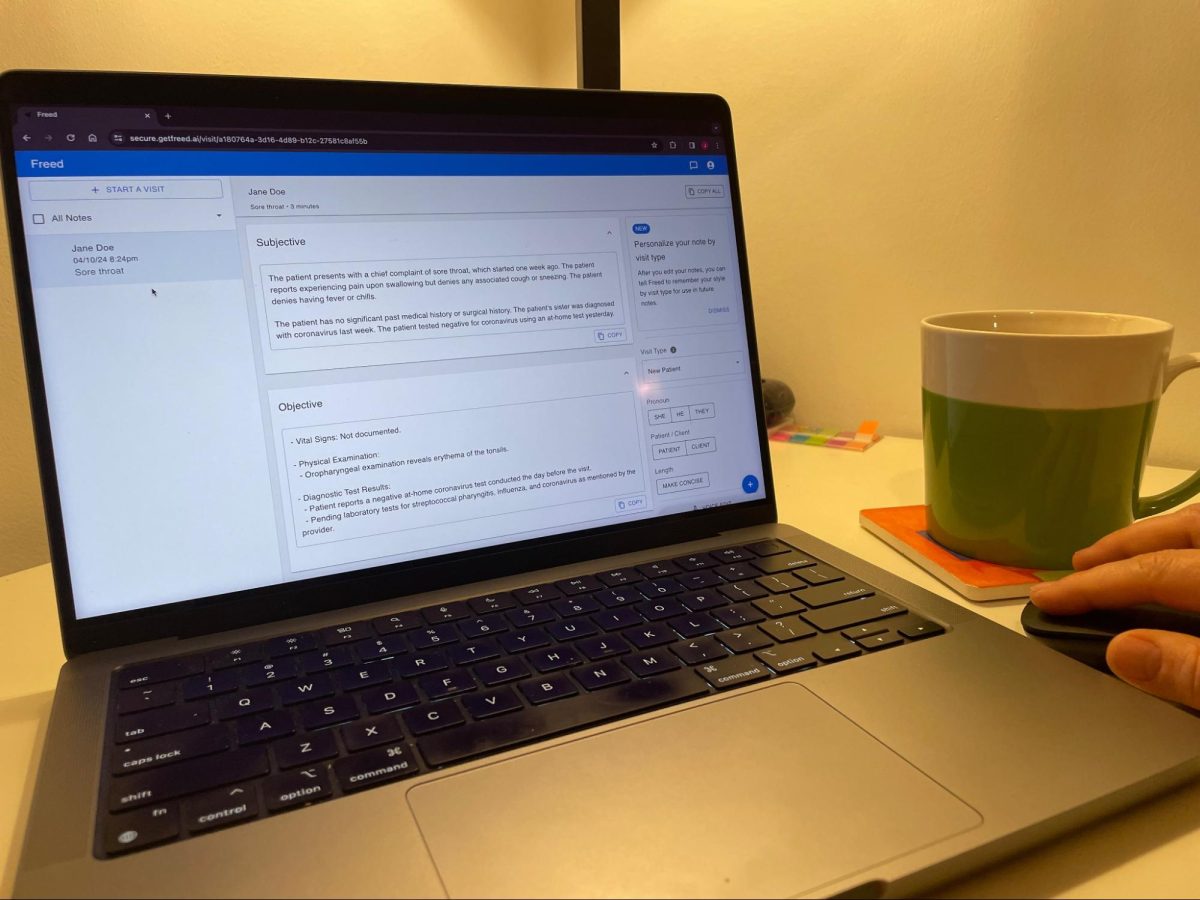After a long day of examining patients, reviewing data and talking to nurses, a doctor sits down to document each individual patient’s visit, review more data and then decide how to treat each patient. The doctor opens Freed, an AI platform that has sorted all of the information from their earlier visits, to do the work that would otherwise be done by hand and memory.
As AI becomes more advanced and widely used, physicians are able to make more accurate diagnoses and plans for patients in less time, improving their time management and accuracy.
According to Harvard Medical School, AI has many uses in medicine, including analysis of medical imaging and working with physicians to write diagnoses and create treatment plans for patients.
Alma Arslanagic, an internal medicine physician in the Chicagoland area, whose work involves physical examinations as well as reviewing data for her patients such as imaging and lab results, notices several developments in her field since the introduction of AI.
She explained that many doctors are starting to use AI documentation platforms such as Freed and Speke, which record and summarize physical examinations, and this is helping them improve their time management. Dr. Arslanagic said she feels this is very important for the purpose of focusing on patients.
“Really what I care most about is taking care of my patients and spending enough time with them, and not spending so much time with documentation,” Dr. Arslanagic said.
Not only are physicians using AI during visits, but they also use it to review results and conduct data analysis.
Dr. Arslanagic emphasized the use of AI in certain fields such as radiology and pathology, where AI is especially useful for recognizing abnormalities in imaging results faster than the human eye can.
Dr. Arslanagic is one of many doctors who feel AI is beginning, and will continue, to help make their jobs easier.
According to a survey done by CNBC, 90% of physicians claim to be burned out on a regular basis, and 83% of doctors said that they felt AI will be able to help.
The introduction of AI is just the beginning stages of many possibilities with what it can accomplish in medicine.
“We were told that AI already has a medical degree, among other degrees. So, I think it’s only growing and learning more and more. I think it’s going to be really taking over, especially in certain fields,” Dr. Arslanagic said.
Despite the many benefits of using AI in so many different ways in medical fields, Dr. Arslanagic feels that there are still some things that it will never be able to replace.
“I think that in medical field, there is a lot to be said about human touch and human approach and healing,” Dr. Arslanagic said. “I think that AI just cannot completely take over that human component of things, and I hope it doesn’t. Because I think that doctors are still needed for much more than just diagnosing and treating, but also healing and supporting patients.”






















































Roberta Sanders • May 16, 2024 at 10:13 am
One of my Drs actually feels medicine is at least 75% human contact.
I tend to agree.
This opinion does not negate our need/use of AI